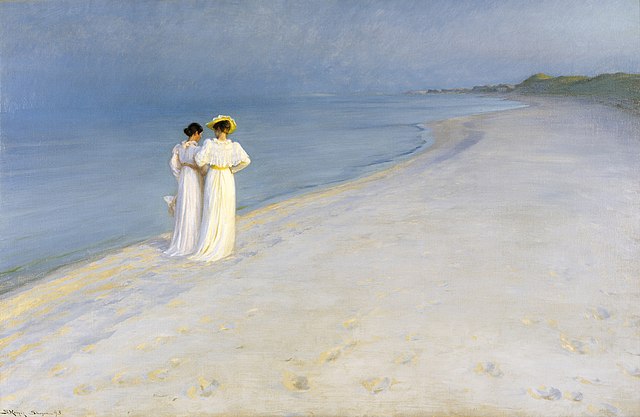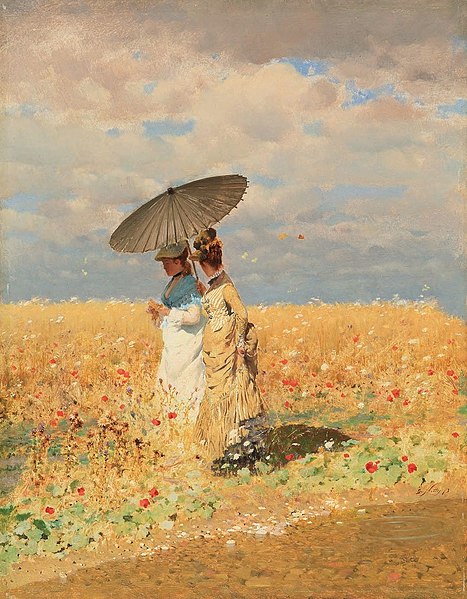
The Thammasat University Library has acquired a new book that should be useful for students interested in exercise, Allied Health Sciences, literature, sociology, philosophy, and related subjects.
52 Ways to Walk: The Surprising Science of Walking for Wellness and Joy, One Week at a Time is by Annabel Streets, an English writer who has previously published a book on the influence of walking in the lives of women, including the artist Georgia O’Keeffe and author Simone de Beauvoir.
The TU Library collection includes other books about different aspects of walking.
Although recommendations about walking in cold weather might not be suitable for all international readers, other parts of the book recommend slow walks to lower cholesterol and help regulate insulin levels, or in the early morning and after meals.

Here are some thoughts about walking from different authors, most of whom are represented in the TU Library collection:
All truly great thoughts are conceived while walking.
- Friedrich Nietzsche, Twilight of the Idols
I only went out for a walk and finally concluded to stay out till sundown, for going out, I found, was really going in.
- John Muir, John of the Mountains: The Unpublished Journals of John Muir
Her pleasure in the walk must arise from the exercise and the day, from the view of the last smiles of the year upon the tawny leaves and withered hedges, and from repeating to herself some few of the thousand poetical descriptions extant of autumn–that season of peculiar and inexhaustible influence on the mind of taste and tenderness–that season which has drawn from every poet worthy of being read some attempt at description, or some lines of feeling.
- Jane Austen, Persuasion
Distance changes utterly when you take the world on foot. A mile becomes a long way, two miles literally considerable, ten miles whopping, fifty miles at the very limits of conception. The world, you realize, is enormous in a way that only you and a small community of fellow hikers know. Planetary scale is your little secret.
Life takes on a neat simplicity, too. Time ceases to have any meaning. When it is dark, you go to bed, and when it is light again you get up, and everything in between is just in between. It’s quite wonderful, really.
You have no engagements, commitments, obligations, or duties; no special ambitions and only the smallest, least complicated of wants; you exist in a tranquil tedium, serenely beyond the reach of exasperation, “far removed from the seats of strife,” as the early explorer and botanist William Bartram put it. All that is required of you is a willingness to trudge.
There is no point in hurrying because you are not actually going anywhere. However far or long you plod, you are always in the same place: in the woods. It’s where you were yesterday, where you will be tomorrow. The woods is one boundless singularity. Every bend in the path presents a prospect indistinguishable from every other, every glimpse into the trees the same tangled mass. For all you know, your route could describe a very large, pointless circle. In a way, it would hardly matter.
At times, you become almost certain that you slabbed this hillside three days ago, crossed this stream yesterday, clambered over this fallen tree at least twice today already. But most of the time you don’t think. No point. Instead, you exist in a kind of mobile Zen mode, your brain like a balloon tethered with string, accompanying but not actually part of the body below. Walking for hours and miles becomes as automatic, as unremarkable, as breathing. At the end of the day you don’t think, “Hey, I did sixteen miles today,” any more than you think, “Hey, I took eight-thousand breaths today.” It’s just what you do.”
- Bill Bryson, A Walk in the Woods: Rediscovering America on the Appalachian Trail
But the beauty is in the walking — we are betrayed by destinations.
- Gwyn Thomas
I was the world in which I walked, and what I saw
Or heard or felt came not but from myself;
And there I found myself more truly and more strange.
- Wallace Stevens, The Collected Poems
Above all, do not lose your desire to walk: every day I walk myself into a state of well being and walk away from every illness. I have walked myself into my best thoughts, and I know of no thought so burdensome that one cannot walk away from it.
- Søren Kierkegaard
I would walk along the quais when I had finished work or when I was trying to think something out. It was easier to think if I was walking and doing something or seeing people doing something that they understood.
- Ernest Hemingway, A Moveable Feast
The stones were sharp,
The wind came at my back;
Walking along the highway,
Mincing like a cat.
- Theodore Roethke
None of your knowledge, your reading, your connections will be of any use here: two legs suffice, and big eyes to see with. Walk alone, across mountains or through forests. You are nobody to the hills or the thick boughs heavy with greenery. You are no longer a role, or a status, not even an individual, but a body, a body that feels sharp stones on the paths, the caress of long grass and the freshness of the wind. When you walk, the world has neither present nor future: nothing but the cycle of mornings and evenings. Always the same thing to do all day: walk. But the walker who marvels while walking (the blue of the rocks in a July evening light, the silvery green of olive leaves at noon, the violet morning hills) has no past, no plans, no experience. He has within him the eternal child. While walking I am but a simple gaze.
- Frédéric Gros, A Philosophy of Walking
To walk is to lack a place. It is the indefinite process of being absent and in search of a proper. The moving about that the city mutliplies and concentrates makes the city itself an immense social experience of lacking a place — an experience that is, to be sure, broken up into countless tiny deportations (displacements and walks), compensated for by the relationships and intersections of these exoduses that intertwine and create an urban fabric, and placed under the sign of what ought to be, ultimately, the place but is only a name, the City…a universe of rented spaces haunted by a nowhere or by dreamed-of places.
- Michel de Certeau, The Practice of Everyday Life

(All images courtesy of Wikimedia Commons)
